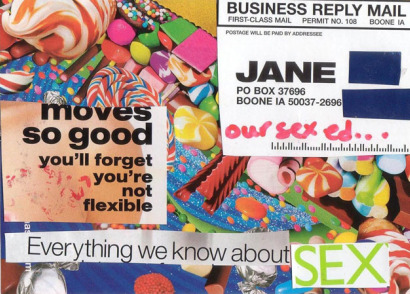Teaching Québec youth about the birds and the bees, because someone has to do it
by Carly Braden
I have very fond memories of my various experiences with formal sexual education. In the fifth grade, our girls-only discussion and anonymous question box ended with peals of laughter when Maddy fell backwards off her chair screaming “OH MY GOD!!!!” after Mrs. Cornish explained why on earth there were such things as flavoured condoms. In the ninth grade, Mme. Hénault split our girls’ gym class into small groups, passed out pieces of paper with a part of the female anatomy scrawled on them and told us to have our pals guess our body part based on the three adjectives we used to describe it. While a lot of us relied on our girlfriends for our informal education, let’s face it – sometimes ten-year-olds don’t get it quite right (to clarify – yes, you CAN get pregnant standing up, but no, babies DON’T come out your pee-hole). So, what you learn, or don’t learn in class is mighty important.
Here’s the issue: in 2005, Québec became the first (and to date, only) province to cut sex education from the school curriculum. While other provinces have been slowly increasing what they’re teaching, Québec withdrew funding and class time for what is arguably one of the most important topics for teens.
What’s left for Québecois youth? Rather than bringing in sex educators, Québec schools now encourage their teachers to work sex ed into all their classes, but they provide no training for their staff, and teaching the facts of life is optional. Seriously? “Susie has Chlamydia. If Susie sleeps with 9 people and uses condoms 65% of the time, and each person she sleeps with has sex with 3 more people and uses condoms 75% of the time, how many people will get Chlamydia? Remember to show your work.” I feel more prepared to make safe choices already.
The good news? À deux mains/Head & Hands is helping pick up the slack. The organization, founded in 1970, has launched a sexual education initiative called the Sense Project (to help kids make “sense” of their bodies and make “sensible” choices – get it??) that focuses on peer education and multimedia platforms. The organization trains their staff and a group of “youth animators” and mentors; from there, animators and mentors work with groups of five students from each school to prepare educational materials and train the students to be peer advisors.
While it’s the mentors and the animators who actually lead the presentations, the students become sexual health advocates in their schools, helping to develop videos, websites, and radio programs to help teach their peers, as well as working with their schools to organize activities, lunch-time drop-ins, and informal education and referrals. Here’s the best part – Head & Hands does all this for free, providing help to schools that really need it.
The Sense Project recognizes that teens don’t always feel comfortable asking teachers their burning questions about sexuality and safety, and that’s why they stress having young mentors (aged 18-25) and students acting as peer educators. Thanks to Head & Hands, you can go ahead and ask a friend how to properly protect yourself and your partner, and how to make wise choices for your body and your mind – no embarrassment required.
To get involved with the Sense Project, check out their website at www.senseproject.org or visit www.headandhands.ca. Or, you can drop in to the Head & Hands office at 5833 Sherbrooke W in NDG, open Monday to Friday 10 am – 9:30 pm.



 Follow Us On Instagram
Follow Us On Instagram
